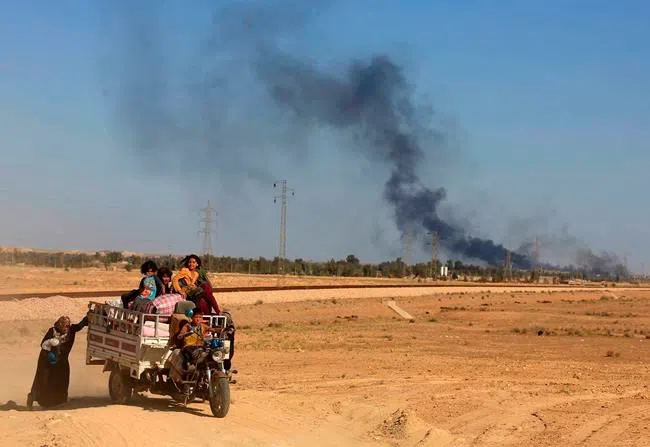
Iraq celebrates victory over IS while grappling with legacy
BAGHDAD — Iraq began removing cement walls from areas surrounding the capital’s most fortified enclave Monday, opening parts of the so-called Green Zone to traffic in a symbolic move coinciding with nationwide celebrations marking the anniversary of the country’s costly victory over the Islamic State group.
The partial reopening of parts of the high security area is meant to portray increased confidence in the country’s overall security situation and is also being billed as an act of transparency following protests against corruption and poor public services.
The enclave on the west bank of the Tigris became home to foreign embassies and key government buildings after the U.S.-led invasion of 2003 and has since then been surrounded by blast walls and barbed wire, inaccessible to most Iraqis.
The partial reopening of some side streets — initially just for five hours a day — has been repeatedly delayed and then timed to coincide with the one year anniversary of Iraq’s victory over IS. The group has lost virtually all the territory it once held but still carries out sporadic attacks to hang on to its last enclave in Syria near the Iraqi border.
